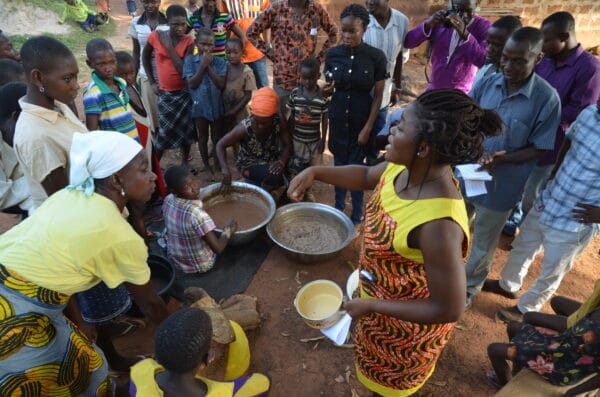
Term
- 5 years
Years
- 2013-2018
Direct Beneficiaries
- 42000
Indirect Beneficiaries
- 331800
Implementation Partners
Knowledge Partners
-
- CUA
Financial Partners

Despite Ghana’s vast tracts of fertile land, the country has struggled with food insecurity for many years. Smallholder farmers in the Eastern Corridor of Northern Ghana struggle to meet their nutritional needs during hunger gaps when food and money are scarce. As a result, women and young children are particularly affected and unable to reach their full potential.
The project Food Security through Cooperatives aims to help establish farmer-owned and managed credit unions and agricultural cooperative enterprises. These cooperatives will deliver the tools farmer members need to be food secure — skills and inputs to produce more and better crops and financial and marketing services to secure higher household income. The project FOSTERING aims to initiate:-
The project employ strategies to ensure equal opportunity for men and women—climate resilience strategies to reduce farmer vulnerability to climate change. We worked closely with local, district, and regional governments and stakeholders to help strengthen their capacity to serve smallholder farmers in the region.
Over five years, CDF Canada helped farmer-owned cooperatives and credit unions in Northern Ghana with training, the economy of scale opportunities, and access to savings and loans. The support enabled the farmer members to improve production, manage household finances, start off-farm businesses and meet nutritional needs.
CDF Canada’s FOSTERING project has helped farmers eliminate their hunger gaps, built five storage facilities, brought gender equality to 1,000 households, and issued almost 23,000 loans to women to start small businesses. After five years, the established institutions continue to serve farmers and drive development in their communities.
Overall, this project reached 51,959 women, men, and youth across 130 communities and reached 124% of its original target. Through training in agricultural and off-farm activities, men increased their income by 740% and women by 972%. As a result, nearly all farmers’ households achieved food security, and children’s nutrition improved. This integrated, cooperative approach supported Ghana’s New Alliance for Food Security and Nutrition Co-operation Framework.

